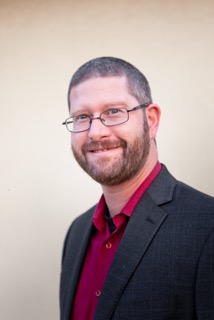By Forest Benedict
 The discovery of a child’s first pornography exposure is every parent’s nightmare. Yet I have heard enough stories and done enough research to believe that all parents will experience this frightening future moment. Whether accidentally or intentionally, I believe every child will see pornography. It’s not a matter of if but when they are exposed, regardless of their gender, background, or beliefs.
The discovery of a child’s first pornography exposure is every parent’s nightmare. Yet I have heard enough stories and done enough research to believe that all parents will experience this frightening future moment. Whether accidentally or intentionally, I believe every child will see pornography. It’s not a matter of if but when they are exposed, regardless of their gender, background, or beliefs.
Some would call that bad news. I call it reality. The hopeful side of this reality is that by paying attention to our children in four specific ways, we as parents can prepare our children’s’ hearts and protect our children’s’ eyes, limiting the impact of their inevitable exposure to pornography.
May we all as parents learn to pay attention to our children in these four crucial ways:
- Pay attention to their access. We exhibit wisdom when we are aware of the porn-accessing potential of every device used by our children. Not only can we research the capabilities of this technology, we can install protective programs to limit inappropriate content. By doing so, we minimize the potential for pornography exposure in our home. This requires both initial efforts and long-term diligence, as the limits of these protections are tested. But paying attention in this way will spare our children from unlimited access to the worst of the web.
- Pay attention to their habits. When we observe the routines of our children, we remain alert to changes in behavior. We are tuned in to attitudes and actions that serve as red flags that pornography is being pursued by our children. These changes could include an increase in tiredness, lying, or other suspicious behavior. If our child has secretly accessed pornography, our awareness of their habits helps us more quickly intervene, assisting them by closing any open doors to porn as quickly as possible.
- Pay attention to their interests. When we are actively engaged in our children’s daily activities, a more trusting relationship can develop. More time together means more conversations. When we are willing to disengage from our distractions, pursuing interested involvement with our children, the relational bond is deepened. When our children eventually access pornography, they will be more likely to share their struggles with us when we are consistent in caring about their interests, desires, and needs.
- Pay attention to their emotions. When we as parents are attuned and responsive to our children’s emotional states, we lay the groundwork for secure attachment. Of all the factors that can protect our children from a long-term vulnerability to addiction, this is the most prominent. When our children are securely attached to us, they learn to regulate their emotions through relationship. When we fail to respond enough to our children’s emotions, this is emotional neglect. Many adult sexual addicts were emotionally neglected as children. They were taught not to trust relational comfort, learning instead to self-soothe in sexually addictive ways. Our journey of learning to connect with our children may entail reading books, seeking treatment for our own addictions and mental distractions, and practicing new skills. Learning to effectively pay attention to our children’s emotional life will prove to powerfully protect them from pornography addiction, in both the present and far into the future.
Paying attention to our children not only helps protect them from pornography but from a host of lifetime problems. Let’s face it; life is hard. How we steward our relationship with our children will either increase or subtract from their suffering in life. Though our efforts cannot guarantee healthy futures for our children, we can still give them the best foundation we can for making healthy choices.
No matter how old they are, our children deserve parents who are willing to invest the necessary time it takes to pay attention and to care. To do this, we must unplug from our own distractions, whether we are sucked into our screens or continually looking out for lust. It will take intentionality on our part and we will need support along the way. But few things satisfy like knowing we gave our best efforts, raising children that not only resist the pull of pornography but who live to love others, changing a world that is captivated by lust.
***
 This post is a copyrighted excerpt from the book Life After Lust: Stories & Strategies for Sex & Pornography Addiction Recovery.
This post is a copyrighted excerpt from the book Life After Lust: Stories & Strategies for Sex & Pornography Addiction Recovery.
Forest Benedict, LMFT, SATP, is the author of the highly-acclaimed book Life After Lust: Stories & Strategies for Sex & Pornography Addiction Recovery. Forest uses online therapy to guide sexually addicted individuals and couples through the Life After Lust recovery program, serving all of California. Forest leads a weekly online drop-in group through Sexandrelationshiphealing.com and does sexual addiction recovery coaching worldwide. He is a writer and blogger, continually creating hopeful and relevant content for those in recovery. Forest is the Program Coordinator of the Sexual Addiction Treatment Provider program at Mid-America Nazarene University, training therapists to do sexual addiction treatment. He is a husband and father who is in recovery. To learn about the resources Forest provides, check out his website at ForestBenedict.com.
